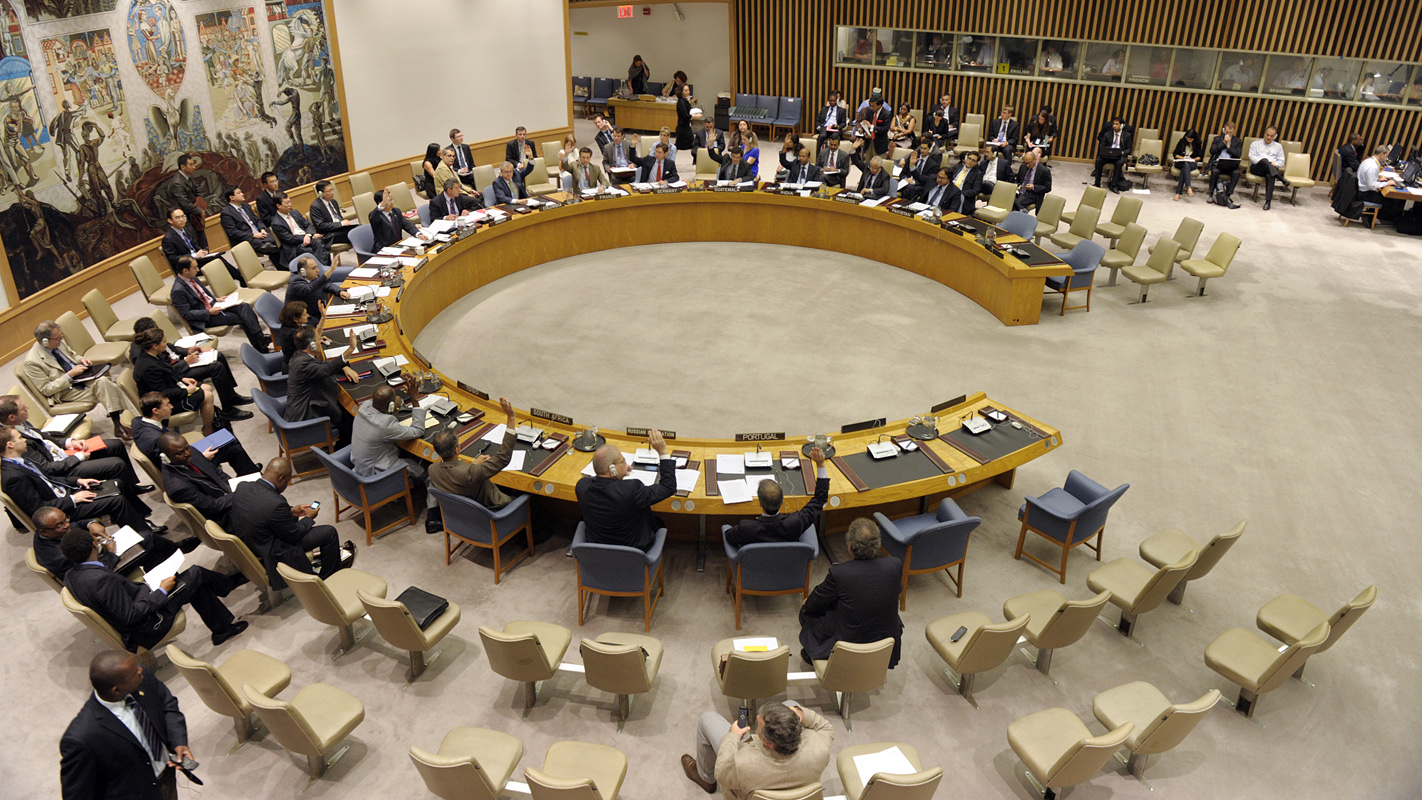Prof Briefs UN Security Council

When a research project took NC State political scientist Mark Nance to New York City to interview members of a United Nations Security Council committee, he got an unexpected response from his interview subjects: They asked him if they could pick his brain for ways to make their work more effective.
Nance agreed readily, because he believes the committee’s work — halting the proliferation of nuclear, biological and chemical weapons — is vitally important.
Nance is an assistant professor in the School of Public and International Affairs, where he teaches international political economy and European politics. Nance’s research focuses on international mechanisms for finding and clamping down on the funding behind illicit activities such as piracy, terrorism and illegal weapons proliferation.
He went to the UN to interview members of the committee charged with overseeing implementation of Security Council resolution 1540, which obligates all UN member states to take whatever steps are necessary to prevent nuclear, biological and chemical weapons from falling into the hands of “non-state actors,” i.e., any individual or organization not acting under the lawful authority of a state.
“The problem with getting the UN to stop weapons proliferation is that the UN is a club for states, and they tend to focus on changing what states do,” Nance explains. “For instance, we already have a treaty to stop nuclear proliferation that makes it illegal under international law for states to pass nuclear technology and know-how to most any other state that doesn’t already have it. But 9/11 revealed a huge gap in international law: It wasn’t illegal for states to pass weapons technologies to non-state actors. States couldn’t give nukes to Brazil, but they could give nukes to a person or an organization in Brazil.”
To fill that gap, in 2004 the UN Security passed resolution 1540, which was the first UN resolution to address non-state actors as a defined category. 1540 was also the first resolution to prohibit proliferation of delivery systems for weapons technologies, as well as the first resolution to outlaw the financing that funds proliferation activities.
Nance interviewed members of the 1540 Committee to learn more about how effective the resolution has been and how member states are implementing its provisions. His research grew out of his work with the Energy and Security Initiative (ESI), an NC State-based initiative of the Triangle Institute for Security Studies, which is a cooperative endeavor of Duke University, UNC-Chapel Hill, NC Central University and NC State. Nance co-directs the ESI with political scientist Bill Boettcher, an associate professor in NC State’s School of Public and International Affairs. The ESI and Nance’s research were funded by the Kenan Institute for Engineering, Technology and Science at NC State.
During his interviews at the UN, Nance learned that the 1540 Committee is trying to reach out to academics in civil society to get them more involved in promoting awareness of 1540 and assisting governments with implementation.
“A couple of the people we interviewed wanted to hear more about our perspective on how to make 1540 more effective, and also on how to get the academic community more interested in the topic,” Nance says. “We had some informal conversations at the end of our interviews, and that turned into an invitation to return to the UN and more formally brief the 1540 Committee on our findings about making 1540 more effective and our thoughts on how to engage academics.”
Nance and one of his research partners — political scientist Bryan Early of the University of Albany, State University of New York — spent an hour briefing the 1540 Committee and answering members’ questions. The briefing, which took place at UN headquarters, was simultaneously translated into the UN’s six official languages (Arabic, Chinese, English, French, Russian and Spanish).
The briefing was such a success that now Nance is working with the UN to organize an academic conference on resolution 1540, to be held at UN headquarters next year.
- Categories:


